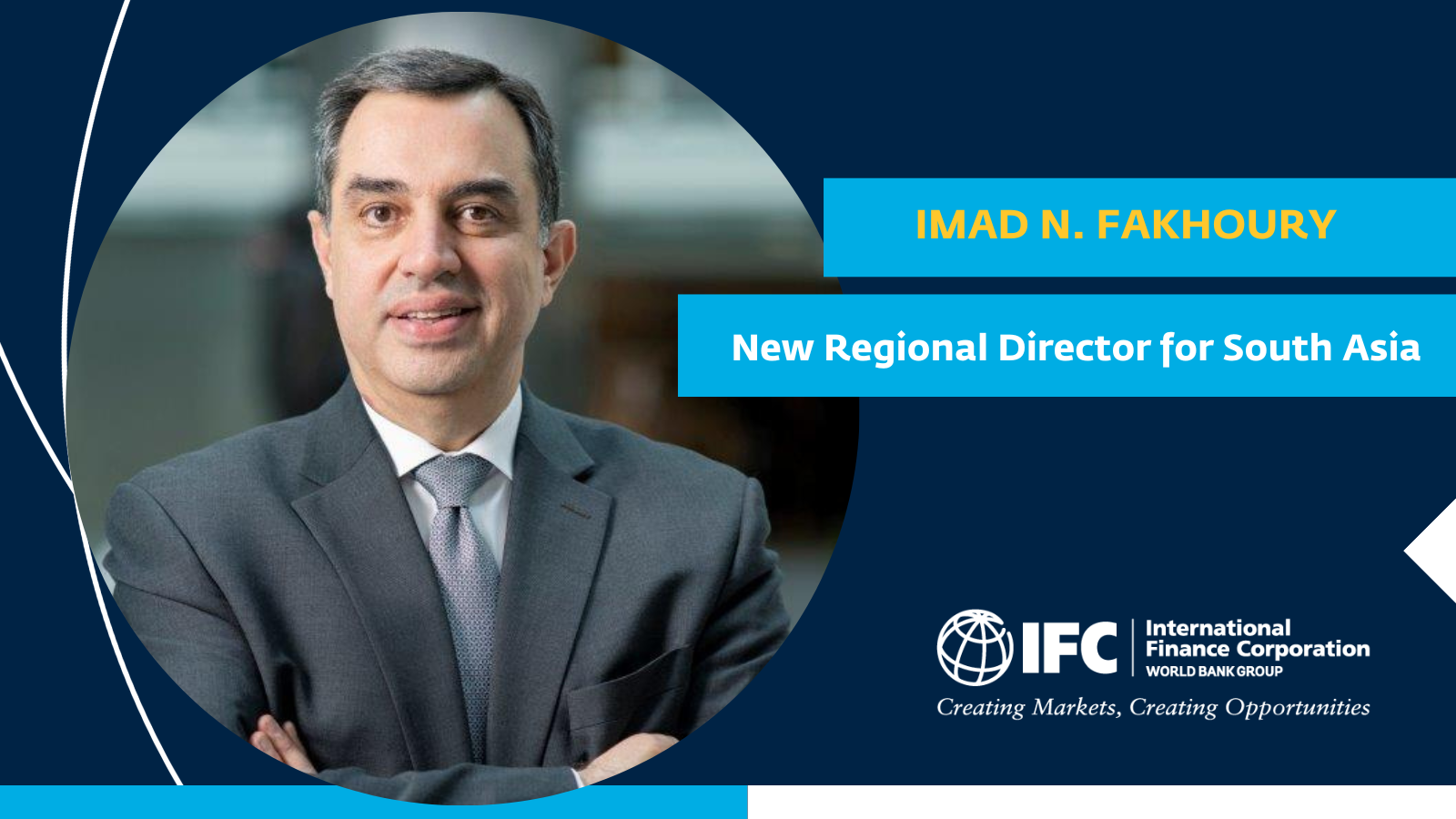
New Delhi, India, January 22, 2024—IFC, a member of the World Bank Group, has appointed Imad N. Fakhoury as Regional Director for South Asia. Based in New Delhi, Fakhoury will spearhead IFC's strategy and operations, while reinforcing relationships with the private sector, governments, and regional partners to boost impactful development outcomes in the region.
"Fueling economic growth and job creation in South Asia is imperative to unlocking the region's potential and paving the path towards prosperity. Fakhoury's deep experience in enabling and scaling up private capital mobilization for sustainable infrastructure and climate transitions will be a huge asset for IFC," said Riccardo Puliti, IFC's Regional Vice President for Asia and the Pacific. "I'm confident his leadership skills and expertise will help further amplify our work, spurring private sector development and contributing to resilient economic growth in the region."
IFC's focus in South Asia centers on providing strategic investments and advisory interventions across Bangladesh, Bhutan, India, the Maldives, Nepal, Sri Lanka to promote inclusive sustainable growth and encourage global and regional integration, among others. Strengthening capital markets, increasing competitiveness, and closing the gender gap are also among IFC's priorities in the region.
"Private sector investment is key to achieving South Asia's development goals amid persisting global crises. By offering innovative and scalable solutions, IFC will help accelerate the region's transition to a greener, more inclusive and resilient development model," said Fakhoury. "Our focus is on creating opportunities where they are needed most, sustaining jobs, supporting climate goals, improving inclusion for all by improving services for people, and strengthening digital and financial access across the region. IFC will also support the region to mainstream gender considerations and help remove obstacles to gender equity in South Asia."
In FY23, IFC provided nearly $3.45 billion in long-term investments in South Asia, including $1.3 billion mobilized from other investors.
Fakhoury added, "With the recently concluded COP28, IFC is prioritizing both climate investments and delivering impactful outcomes to help countries achieve their climate targets. I look forward to engaging with all stakeholders to ramp up our support for sustainable infrastructure—encompassing mitigation and adaptation as well as digital connectivity—while empowering small businesses and facilitating public-private partnerships (PPPs) to increase the region's resilience."
Fakhoury joined the World Bank Group in 2019 as a Senior Adviser at IFC and moved into his previous role as Global Director for Infrastructure Finance, PPPs & Guarantees at the end of 2019. From 2010-2018, he held several ministerial positions in successive Jordanian governments as Minister of Planning and International Cooperation, Minister of Mega Projects, Minister of Public Sector Development, and Chief of Staff to the King of Jordan.
One of the key architects of flagship PPP transactions in Jordan, he also served as a co-founder and chair/board member in several national strategic infrastructure PPP companies, public organizations, and councils.
Fakhoury has a BSc in Biomedical Engineering and an MSc in Engineering Management from Case Western Reserve University. He also holds a Master's in Public Policy from the Harvard Kennedy School of Government, and an MBA from the Kellogg Business School at Northwestern University.
About IFC
IFC — a member of the World Bank Group — is the largest global development institution focused on the private sector in emerging markets. We work in more than 100 countries, using our capital, expertise, and influence to create markets and opportunities in developing countries. In fiscal year 2023, IFC committed a record $43.7 billion to private companies and financial institutions in developing countries, leveraging the power of the private sector to end extreme poverty and boost shared prosperity as economies grapple with the impacts of global compounding crises. For more information, visit www.ifc.org
Stay Connected with IFC on social media
Contacts
Stay Informed
Sign up to have customizable news & updates sent to you.